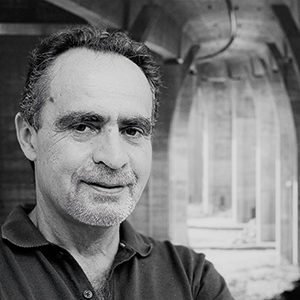
Álvaro Domingues
Álvaro Domingues (Melgaço, 1959) é geógrafo e professor na Faculdade de Arquitetura da Universidade do Porto, onde também é investigador no CEAU-Centro de Estudos de Arquitetura e Urbanismo. Para além das suas funções docentes na Universidade do Porto e noutras universidades publica com regularidade sobre temáticas relacionadas com a geografia urbana, o urbanismo e a paisagem.
Álvaro Domingues (Melgaço, 1959) is a geographer and professor at the Faculty of Architecture of the University of Porto, where he is also a researcher at CEAU- Center for Architecture and Urbanism Studies. In addition to his teaching duties at the University of Porto and other universities, he regularly publishes on topics related to urban geography, urbanism and the landscape.
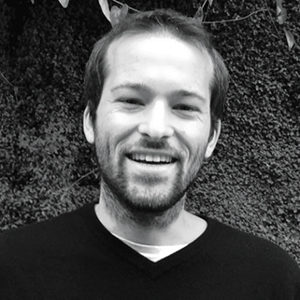
António Ribeiro Amado
António Ribeiro Amado nasceu em Lisboa em 1989. É doutorado em Urbanismo com a tese Monitorização das Dinâmicas Territoriais (2020) pela Faculdade de Arquitetura da Universidade de Lisboa (FA-UL), pós-graduação em Urbanismo (2014), Mestre em Arquitetura com especialização em Planeamento Urbano e Territorial (2012) e Licenciado em Estudos de Arquitetura (2010) pela mesma Universidade.
Atualmente é Professor Auxiliar Convidado da Universidade de Lisboa – Faculdade de Arquitetura (FA-ULisboa) onde leciona desde 2016 (Mestrado Integrado em Arquitetura e Doutoramento em Urbanismo).
Membro do Centro de Investigação em Arquitetura, Urbanismo e Design (CIAUD), onde se destaca como Investigador Colaborador em Urbanismo, tem vindo a desenvolver investigação centrada no urbanismo e no ordenamento do território.
Ganhou o prémio Archiprix (2013) e o Prémio de Mérito Académico da Caixa Geral de Depósitos em Urbanismo e Planeamento (2012).
Ao longo dos anos teve oportunidade de colaborar com diversas equipas multidisciplinares no desenvolvimento de grandes projectos, de âmbito nacional e internacional, como o Plano Director Geral Metropolitano de Luanda (Angola), Plano Director de Ordenamento Territorial da Região Administrativa Especial de Oé- Cusse Ambeno (Timor-Leste) e Plano de Desenvolvimento Urbano de Palmeiras (Cabo Verde).
António Ribeiro Amado was born in Lisbon in 1989. He holds a PhD in Urbanism with a thesis on Monitoring territorial dynamics (2020) by the Faculty of Architecture – University of Lisbon (FA-UL), a post-graduation on Urbanism (2014), a Master Degree in Architecture with a specialization in Urban and Territorial Planning (2012) and a Bachelor in Architectural Studies (2010) by the same University.
He is currently a Visiting Assistant Professor at the University of Lisbon – Faculty of Architecture (FA-ULisboa) where he has been lecturing since 2016 (Master degree in Architecture and in the PhD in Urbanism).
Member of the Research Center of Architecture, Urbanism and Design (CIAUD), where he stands as Contributor Investigator in Urbanism, he has been developing research focussed on urbanism and spatial planning.
He won the Archiprix prize (2013) and the Academic Merit Award from Caixa Geral de Depósitos in Urbanism and Planning (2012) .
Along the years he had the opportunity to collaborate with several multidisciplinary teams in the development of major projects, national and international wide, such as the Plano Director Geral Metropolitano de Luanda (Angola), Plano Director de Ordenamento Territorial da Região Administrativa Especial de Oé-Cusse Ambeno (Timor-Leste), and Plano de Desenvolvimento Urbano de Palmeiras (Cabo Verde).
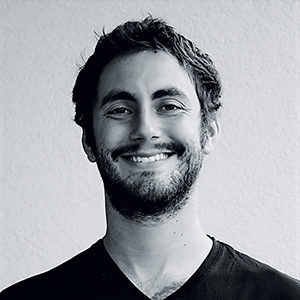
Giacomo Ciavattini
Giacomo Ciavattini, concluiu o Mestrado Integrado em Arquitetura da Faculdade de Arquitetura da Universidade do Porto (FAUP) em 2021, e venceu a edição Archiprix 2022 com o Projeto “The Forgotten Countryside, a contemporary opportunity – Catalytic transformation for a farm in the Marche Region, Italy”. O mesmo projeto foi nomeado para os EUmies Awards Young Talent Architecture Award YTAA 2023, organizado pela fundação Mies van der Rohe com o apoio da CreativeEurope.
Colaborou com o Studio Architettura Brunetti Filipponi e Associati, e colabora desde 2021 com o Atelier Alfonso Femia.
Giacomo Ciavattini, completed the Integrated Master in Architecture at the Faculty of Architecture of the University of Porto (FAUP) in 2021, and won the Archiprix 2022 edition with the Project “The Forgotten Countryside, a contemporary opportunity – Catalytic transformation for a farm in the Marche Region, Italy”. The same project was nominated for the EUmies Young Talent Architecture Award YTAA 2023, organized by the Mies van der Rohe Foundation with the support of CreativeEurope.
The architect collaborated with Studio Architettura Brunetti Filipponi e Associati, and collaborates since 2021 with Atelier Alfonso Femia.
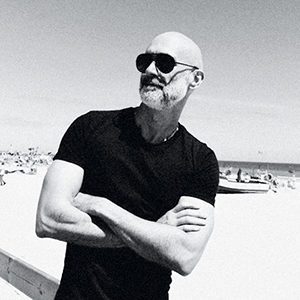
Miguel Baptista-Bastos
Miguel Baptista-Bastos nasceu em Lisboa. Estudou na Escola Artística António Arroio; depois estudou e concluiu a Licenciatura (pré-Bolonha), Provas de Aptidão Pedagógica e Capacidade Científica, Mestrado e Doutoramento – todos na Faculdade de Arquitectura da Universidade Técnica de Lisboa. Arquitecto, investigador e professor da Faculdade de Arquitectura da Universidade de Lisboa. Organiza, dá conferências e workshops. Colaborou em actividades universitárias relacionadas com a gestão e a coordenação científica. Trabalhou em vários ateliers e teve escritório próprio, sendo autor e colaborador de projetos de arquitetura em Portugal e além-fronteiras. É também autor de artigos publicados a nível nacional e internacional. Foi distinguido com diversos prémios e homenagens.
Miguel Baptista-Bastos was born in Lisbon. He studied at the António Arroio Artistic School; then he studied and concluded his degree (pre-Bologna), Pedagogical Aptitude and Scientific Capacity Tests, Masters and Doctorate – all at the Faculty of Architecture of the Technical University of Lisbon. Architect, researcher and professor at the Faculty of Architecture of the University of Lisbon. Organises, gives conferences and workshops. Collaborated in university activities related to management and scientific coordination. He worked in several ateliers and had his own office, being the author and collaborator of architecture projects in Portugal and in other countries. He is also the author of articles published nationally and internationally. He was distinguished with several awards and honors.

Paula Pacheco
Licenciada em Engenharia do Território pelo Instituto Superior Técnico desde 1997. Mestre em Qualificação da Cidade pela Universidade Católica Portuguesa em 2008, onde realizou a sua dissertação sob o tema “A Cidade Portuária – Qualificação e Competitividade”.
Colaborou com a DHV-Portugal onde integrou equipas de projeto na área do planeamento urbano e do ambiente. Durante 15 anos colaborou estreitamente com o Professor Manuel da Costa Lobo, no CESUR-IST, na coordenação de planos municipais de ordenamento do território, sendo coautora de diversos artigos e livros publicados. Colabora a tempo inteiro na Câmara Municipal de Lisboa, onde elaborou e coordenou diversos planos municipais de diferentes escalas para a cidade. Foi gestora de projeto do Projeto “Ondas de Calor”. Atualmente é membro permanente da Equipa de Projeto ReSist, da Câmara Municipal.
Membro Fundador da Associação Portuguesa de Urbanistas, desde 2017, é hoje Vice-Presidente do Conselho Diretivo. Representa a APU no Conselho Europeu de Urbanistas (ECTP-CEU) como Delegada Nacional.
Graduated in Territorial Engineering from Instituto Superior Técnico in 1997. Master in City Qualification from Universidade Católica Portuguesa in 2008, where she carried out her dissertation on the theme “The Port City – Qualification and Competitiveness”.
She collaborated with DHV-Portugal integrating project teams in the field of urban planning and the environment. For 15 years, she collaborated closely with Professor Manuel da Costa Lobo, at CESUR-IST, in the coordination of municipal land use plans, and is co-author of several published articles and books. She collaborates full-time at the Lisbon City Council, where she prepared and coordinated several municipal plans of different scales for the city. She was project manager of the “Ondas de Calor” project and is currently a permanent member of the City Council’s ReSist Project Team.
Founding Member of the Portuguese Association of Urban Planners since 2017, she is currently Vice-President of the Board of Directors, representing the APU in the European Council of Urban Planners (ECTP-CEU) as National Delegate.
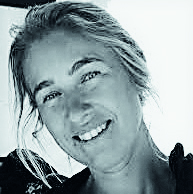
Paula Simões
Arquiteta Paisagista. Licenciada em Arquitectura Paisagista (1998), Mestre em “Antropologia – Patrimónios e Identidades” (2002) e Doutorada em Artes e Técnicas da Paisagem (2015). Professora Auxiliar na Universidade de Évora é docente no mestrado em Arquitectura Paisagista e no doutoramento em Artes e Técnicas da Paisagem.
Membro do CHAIA, centro de investigação da Universidade de Évora, os seus interesses de investigação centram-se na temática do desenho da paisagem, transformação da paisagem e a paisagem como potência.
Sócio da Sítio e Lugar, Lda – fundada em 2000 e sediada em Lisboa (Portugal) – a empresa tem como atividade principal a Arquitetura Paisagista e concebe e desenvolve obras a diferentes níveis e escalas. A Sítio e Lugar, Lda desenvolve um trabalho multifacetado e interdisciplinar de artes, estudos e projectos de arquitectura paisagista, procura respeitar a identidade do lugar e baseia o seu desenho em critérios estéticos, ecológicos e funcionais.
Landscape Architect. With a Degree in Landscape Architecture (1998), a Master in “Anthropology – Heritage and Identities” (2002) and a PhD on Arts and Techniques of the Landscape (2015). Assistant Professor at the University of Évora she teaches on Landscape Architecture Master and on Landscape Arts and Techniques Doctoral Degree.
Member of CHAIA, investigation centre of the University of Évora, her research interests focus on the theme of the landscape design, landscape transformation and landscape potentiality.
Partner of Sítio e Lugar, Lda – founded in 2000 and based in Lisbon, Portugal – the firm’s core business is Landscape Architecture designing and developing projects at different levels and scales. Sítio e Lugar, Lda develops multifaceted and interdisciplinary work in the field of arts, research and landscape projects and seek to respect the identity of the place basing the design on aesthetic, ecological and functional criteria.
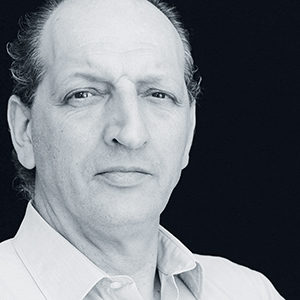
Paulo Seco
Licenciado em Arquitetura pela Faculdade de Arquitetura da Universidade do Porto em 1991. Obteve o Título de especialista em Arquitetura e Construção – Património Arquitetónico e Construído pelo Instituto Politécnico de Tomar, em Fevereiro de 2014. É docente das disciplinas de Projeto II , Construção para Interiores e de Gestão, Orçamentação e Comunicação de Projeto da Licenciatura do Curso de Design de Interiores da Escola Superior de Artes e Design – Matosinhos, desde 2008. Exerce com regularidade a atividade de arquitetura e de design, desde 1991, sendo um dos co-fundadores do atelier de arquitetura Impare criado em Janeiro de 2001. Recebeu o 2º Prémio no Concurso Público para a Reabilitação das Estufas Tropicais e espaço de “Ciência In Situ” do Jardim Botânico da Universidade de Coimbra, promovido pela Universidade de Coimbra (2011); o 1º Prémio no Concurso Nacional de Design de Mobiliário, promovido pela AIMMP, na Categoria “Design Quotidiano” com o projeto “Starp System” (2010); e, foi selecionado para o IV Prémio de Arquitetura – Enor com o projeto de habitação unifamiliar “Casa João Alegre” (2009).
Graduated in Architecture from the Faculty of Architecture of the University of Porto in 1991. He obtained the title of specialist in Architecture and Construction – Architectural and Built Heritage by the Polytechnic Institute of Tomar, in February 2014. He teaches the Design II, Construction for Interiors and Project Management, Budgeting and Communication for the Degree in Interior Design at the Escola Superior de Artes e Design – Matosinhos, since 2008. He regularly works in architecture and design, since 1991, being one of the co-founders from the architecture studio Impare created in January 2001. He received the 2nd Prize in the Public Competition for the Rehabilitation of Tropical Greenhouses and “Science In Situ” space of the Botanical Garden of the University of Coimbra, promoted by the University of Coimbra (2011); 1st Prize in the National Furniture Design Competition, promoted by AIMMP, in the “Everyday Design” Category, with the “Starp System” project (2010); and was selected for the IV Architecture Prize – Enor with the single-family housing project “Casa João Alegre” (2009).

